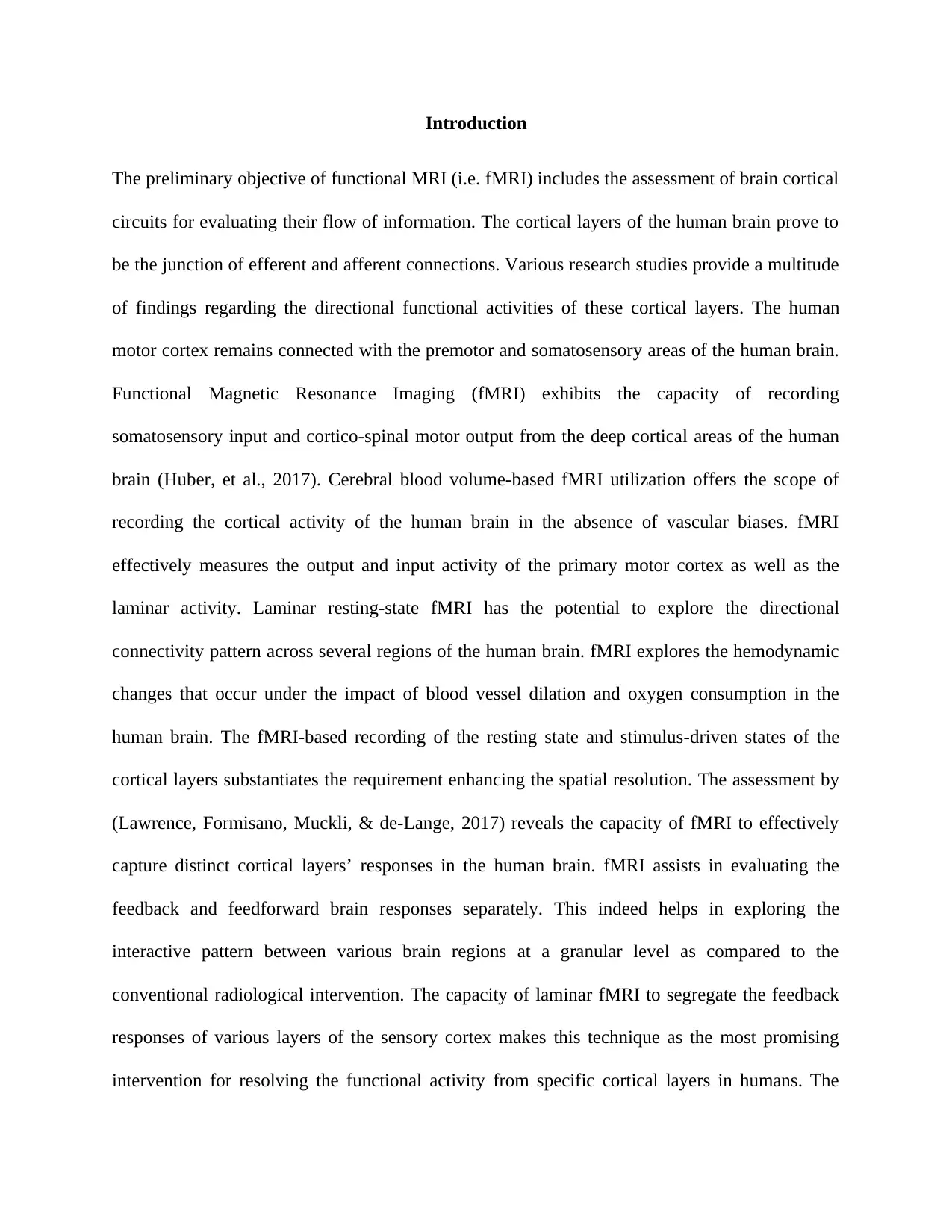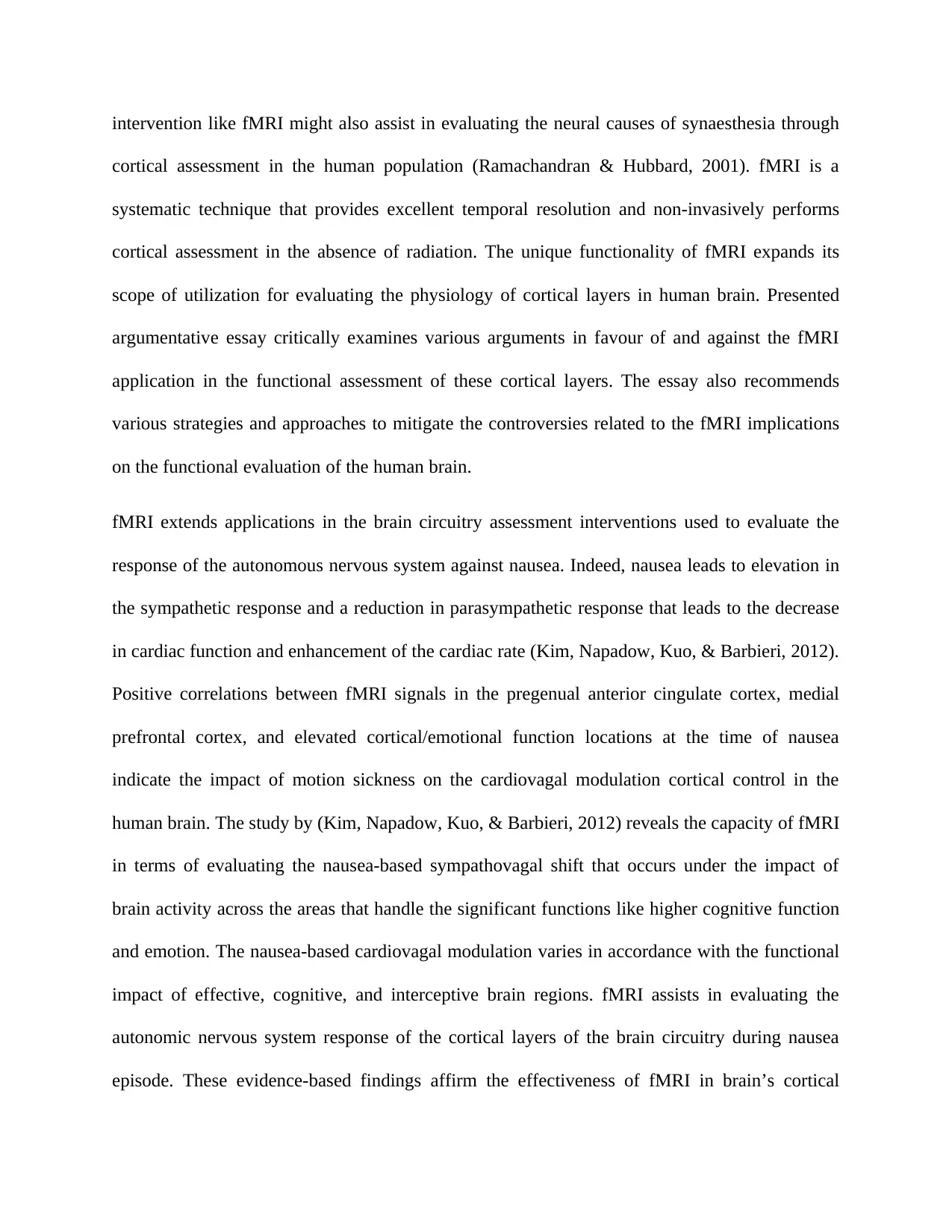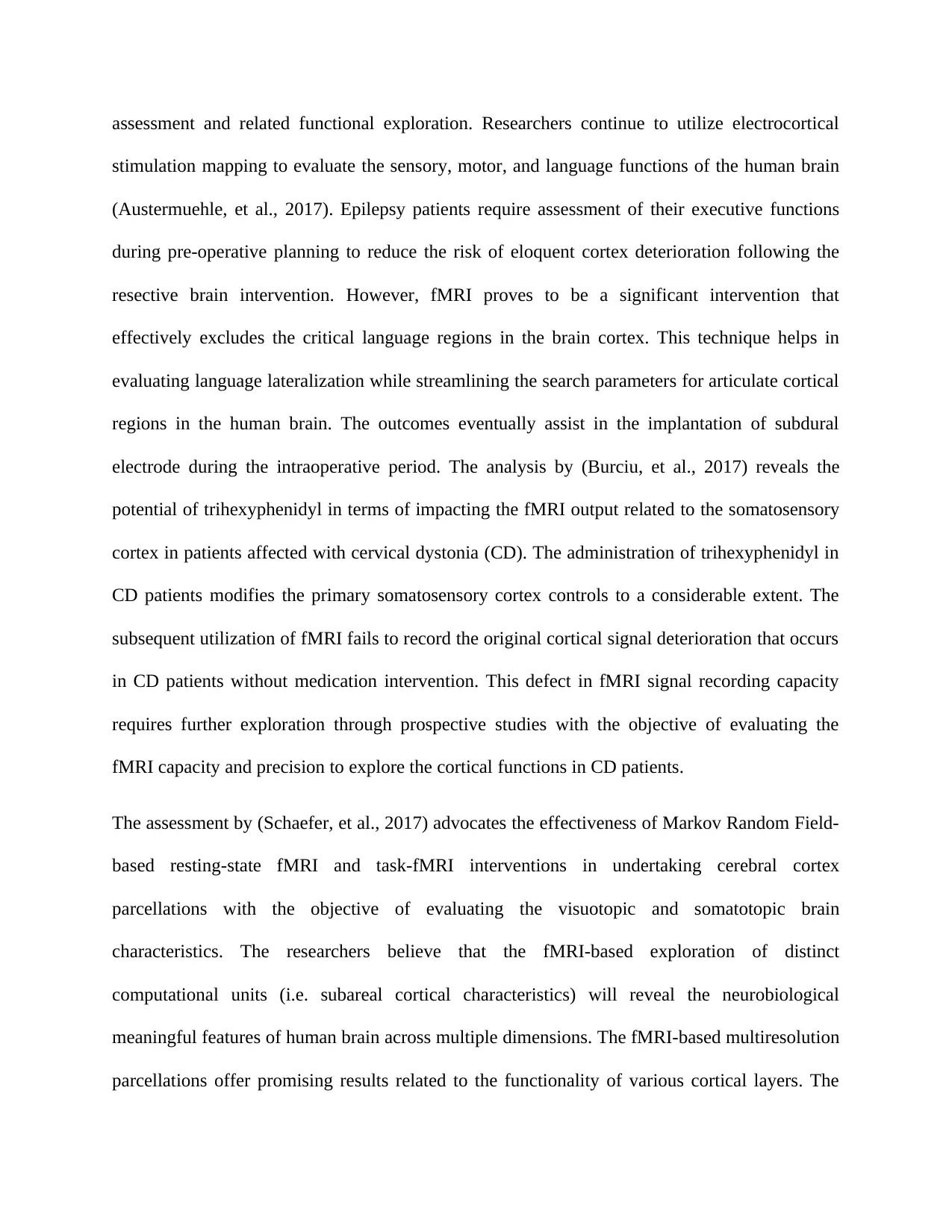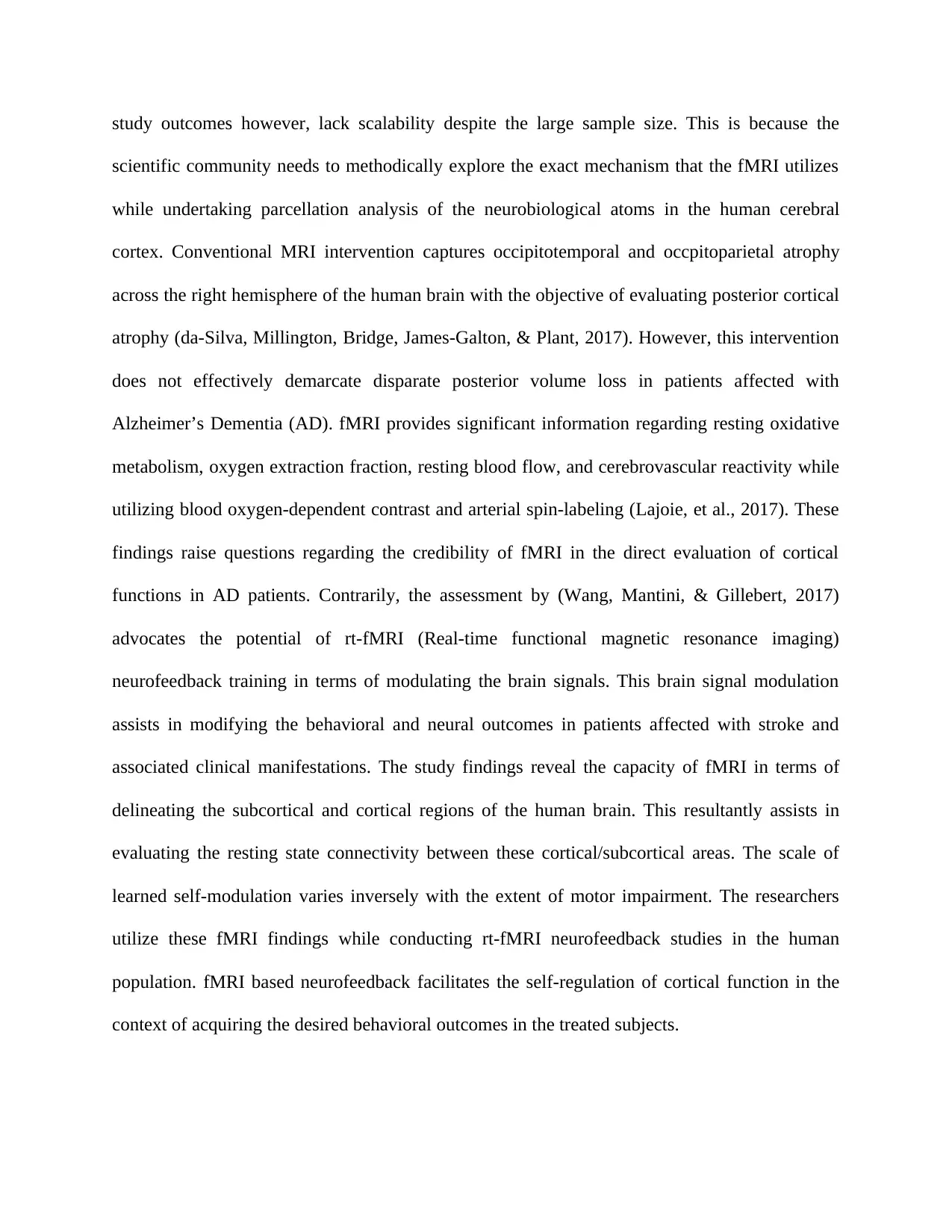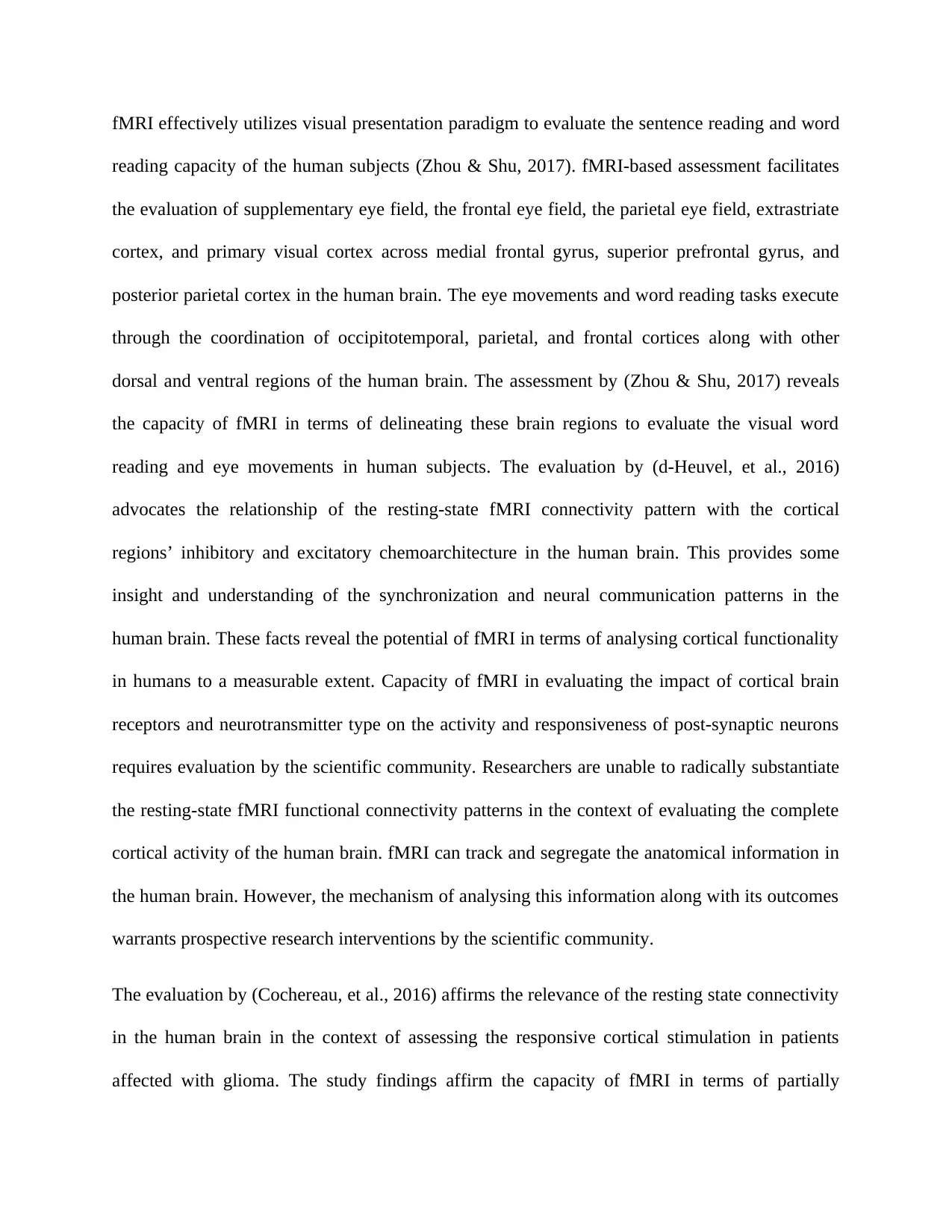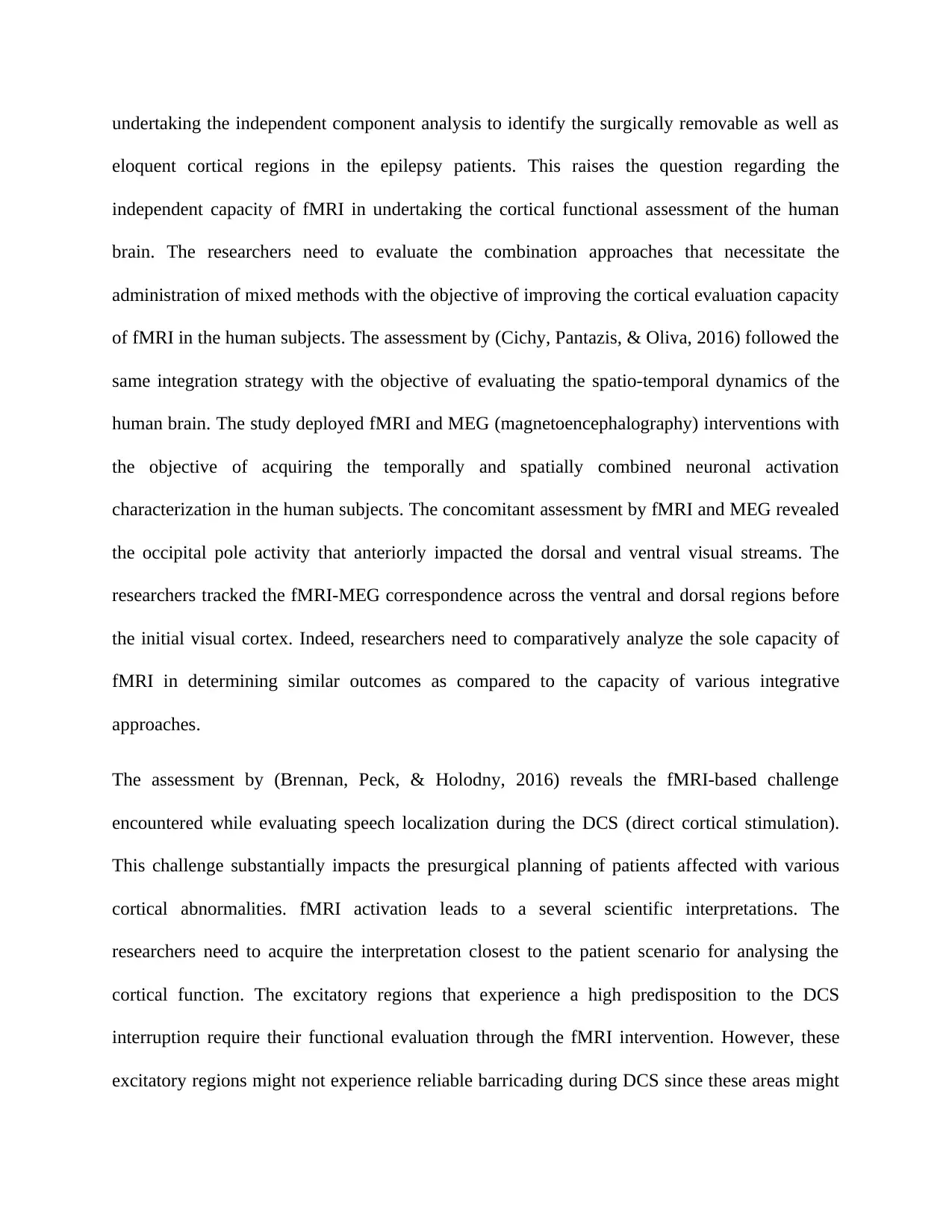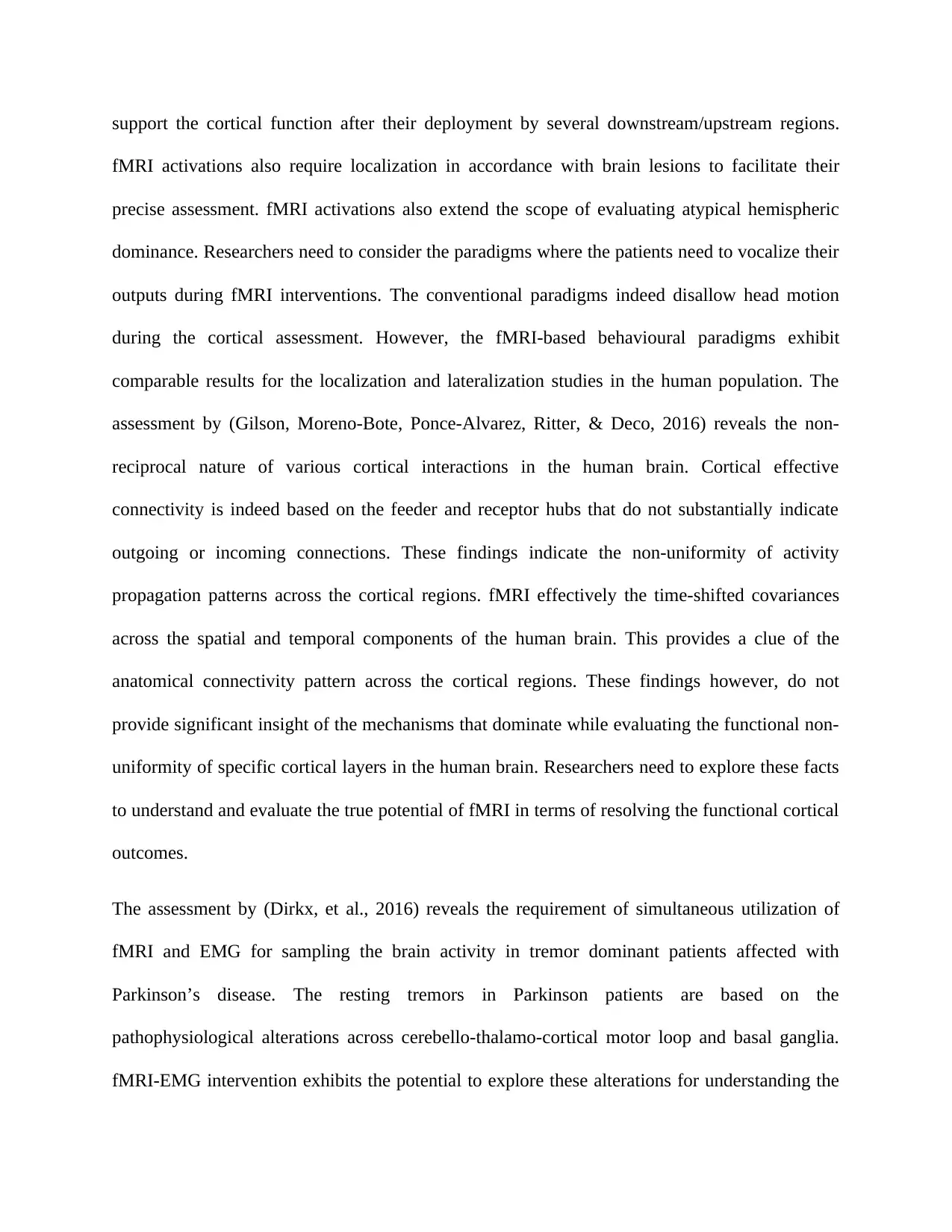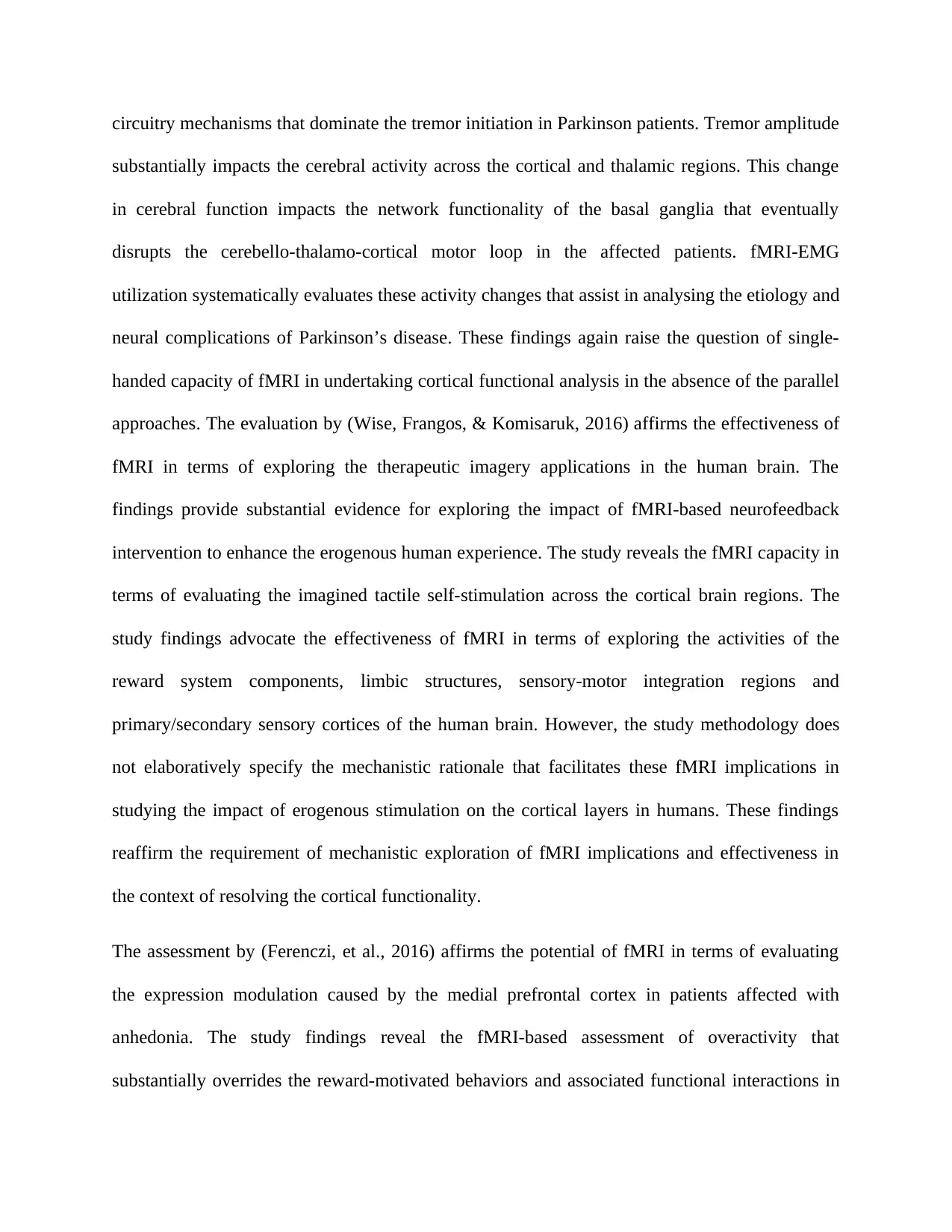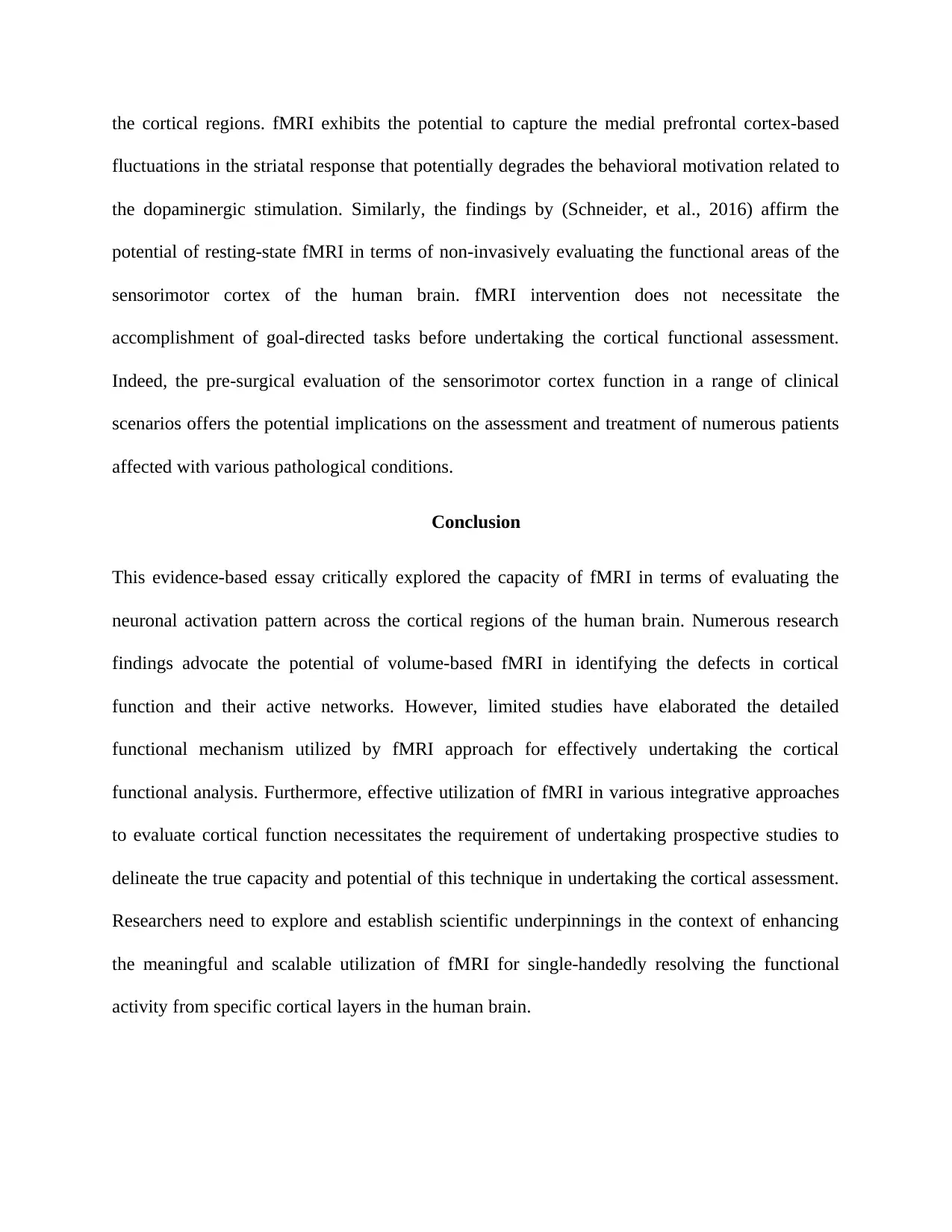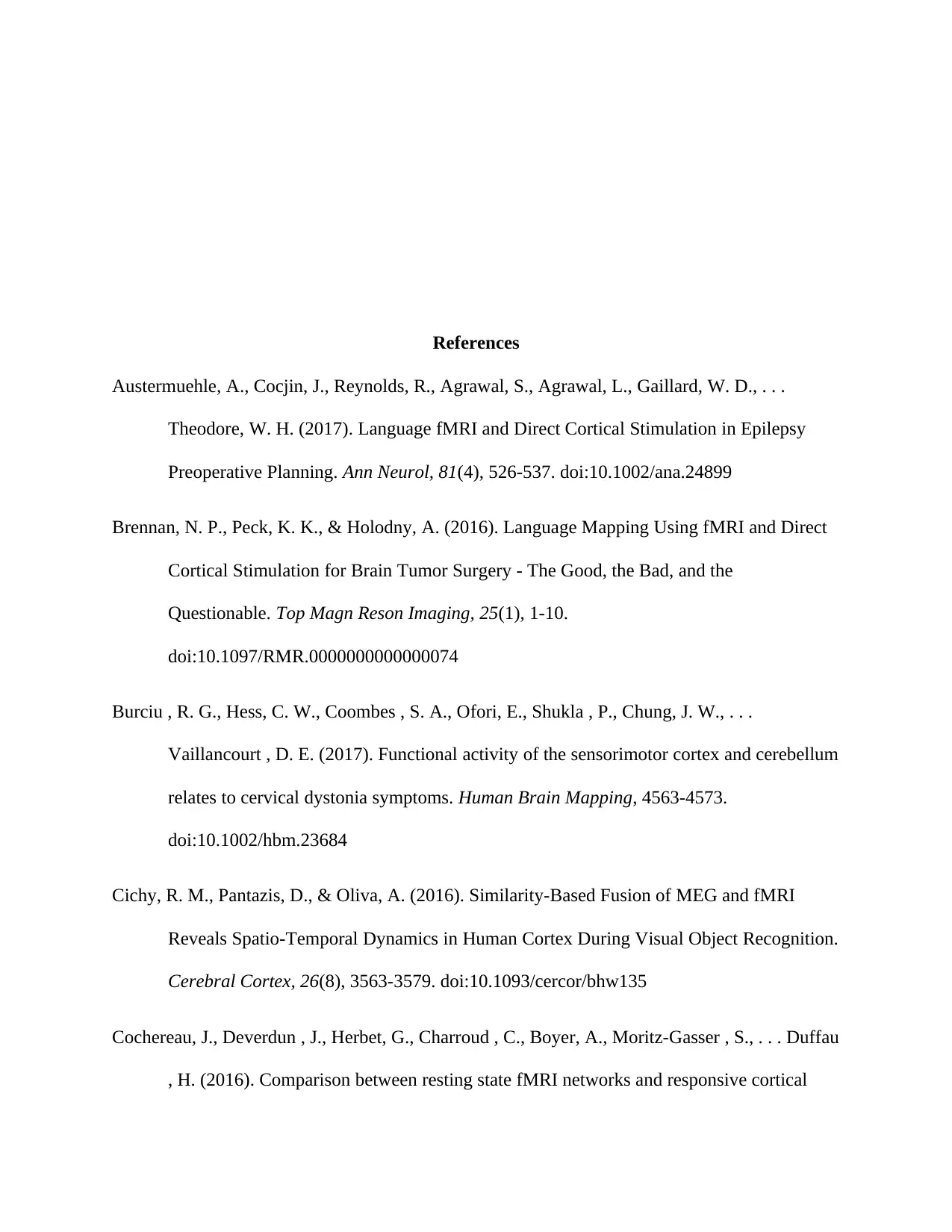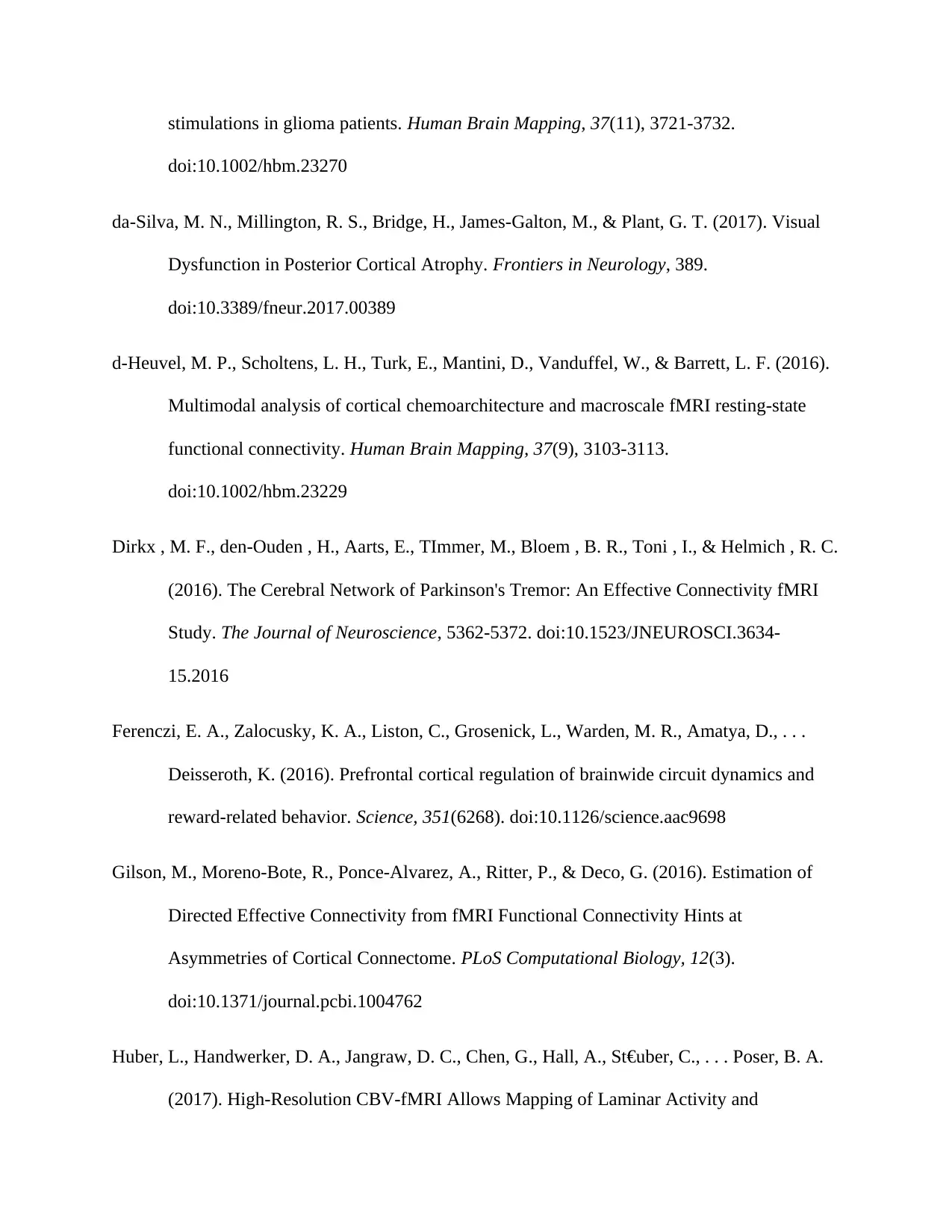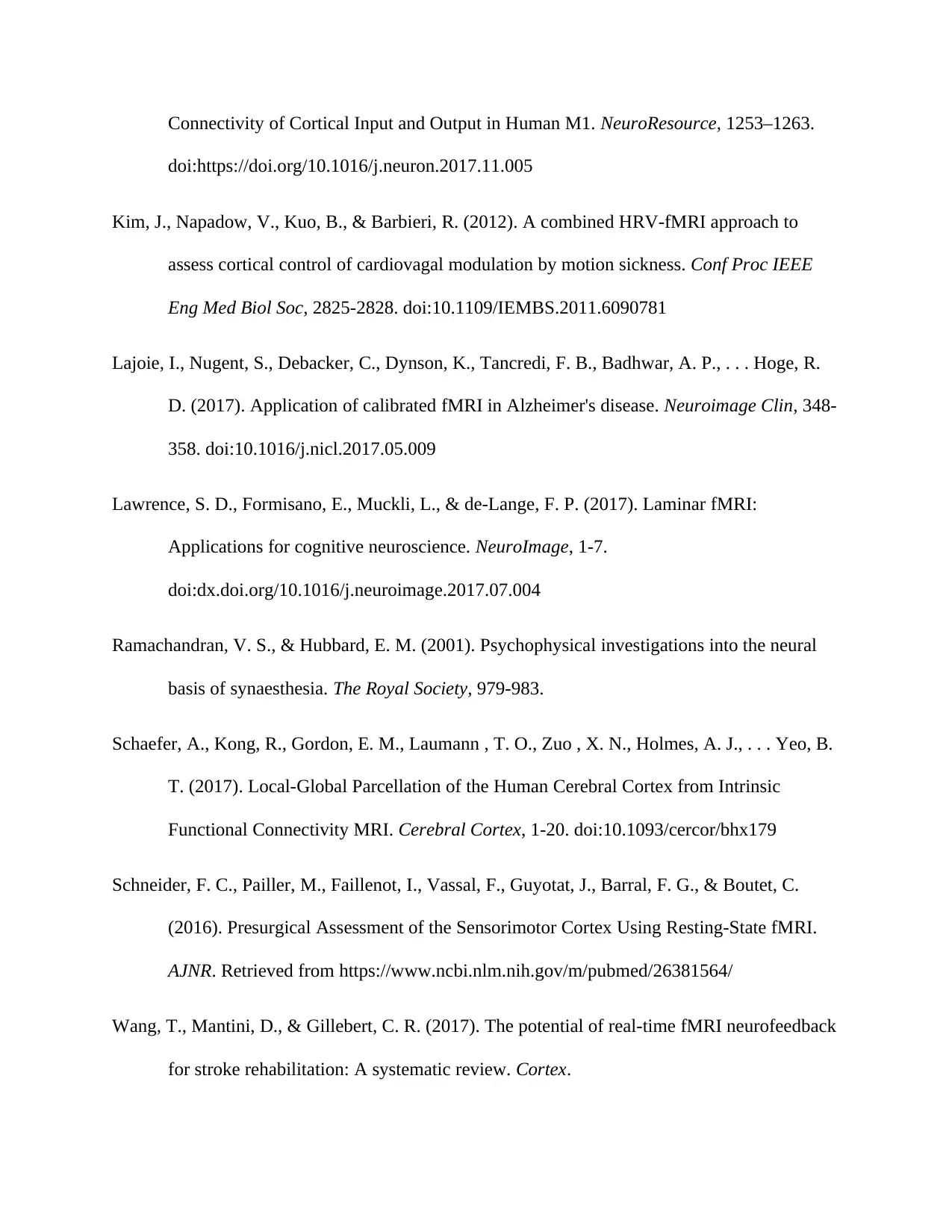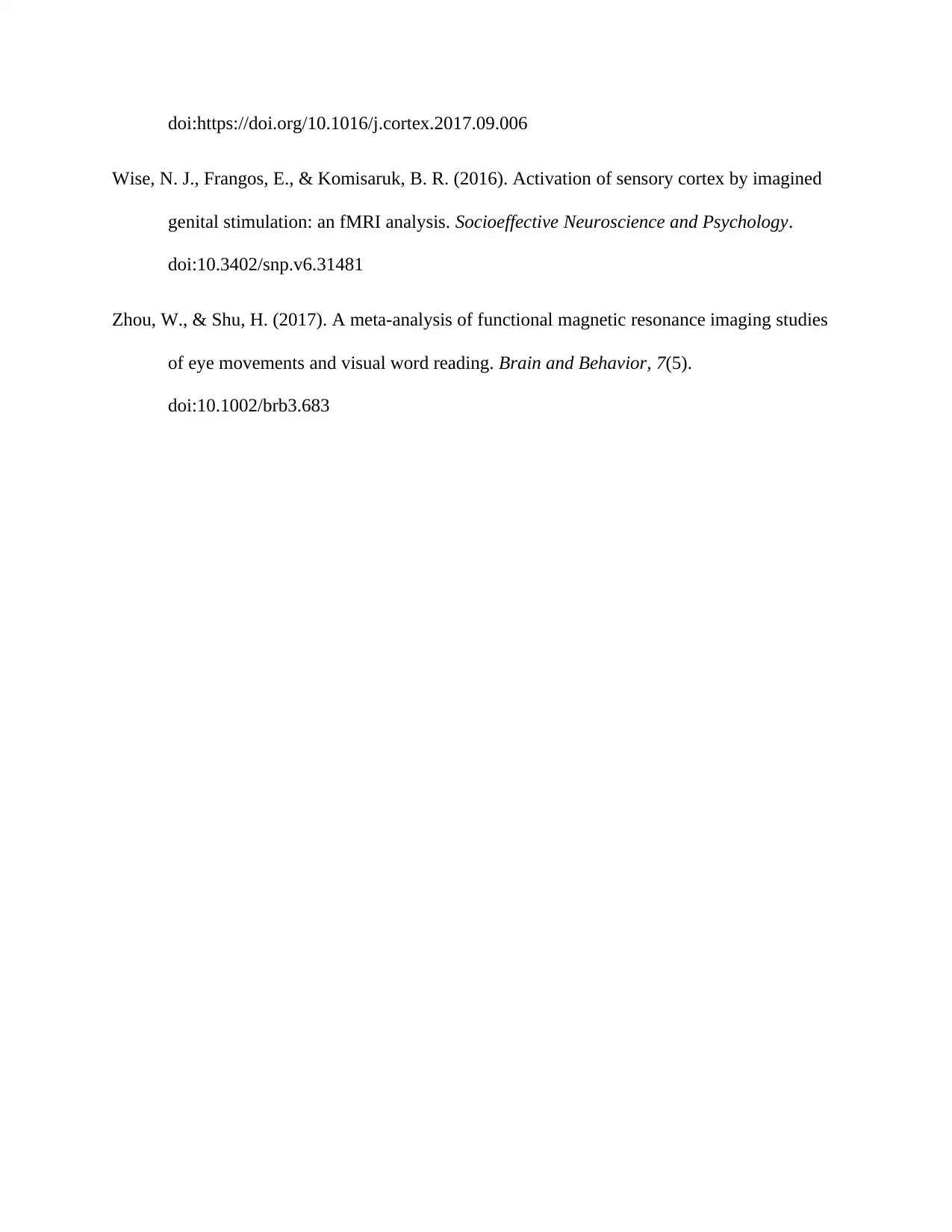Functional MRI (fMRI) for Resolving Cortical Layers' Functional Activity in Humans
VerifiedAI Summary
This essay critically examines various arguments in favour of and against the fMRI application in the functional assessment of cortical layers in humans. It also recommends various strategies and approaches to mitigate the controversies related to the fMRI implications on the functional evaluation of the human brain. The essay explores the potential of fMRI in evaluating the physiology of cortical layers in the human brain and its effectiveness in brain’s cortical assessment and related functional exploration. It also discusses the capacity of fMRI in terms of evaluating the nausea-based sympathovagal shift that occurs under the impact of brain activity across the areas that handle the significant functions like higher cognitive function and emotion. The essay also advocates the potential of rt-fMRI (Real-time functional magnetic resonance imaging) neurofeedback training in terms of modulating the brain signals. This brain signal modulation assists in modifying the behavioral and neural outcomes in patients affected with stroke and associated clinical manifestations.
![[object Object]](/_next/static/media/star-bottom.7253800d.svg)
![[object Object]](/_next/static/media/star-bottom.7253800d.svg)

